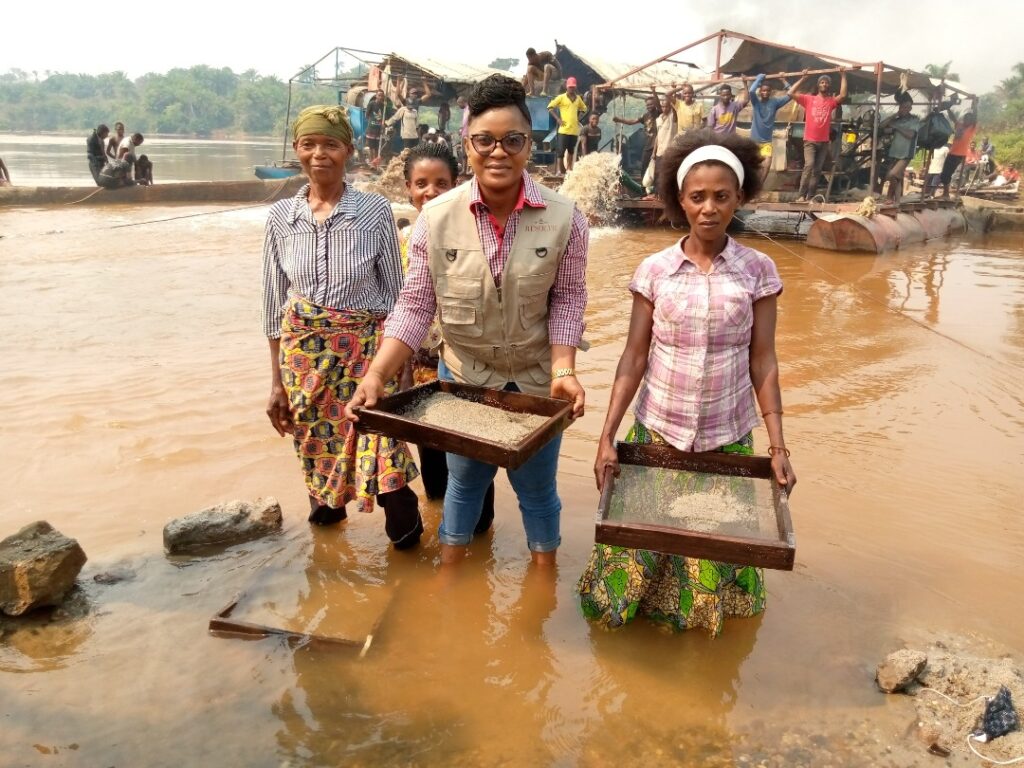This week, a GemLightbox from Antwerp will arrive in the city of Kananga in the Democratic Republic of Congo (DCR) to support transparency and traceability for local artisanal diamond miners by using accessible blockchain technology.
The equipment – a lightbox made for 360° jewellery photography and videography – will be used by six mining cooperatives of artisanal diamond miners as the first step of a blockchain pilot project named 'OrigemA'.
"Two weeks ago, I shipped some equipment to the DRC, which will be brought to one of the cooperatives as a test,” Karen Rentmeesters, Industry Relations Manager at Antwerp World Diamond Centre (AWDC), told Belga News Agency.
'OrigemA' was launched in May in collaboration with the DRC Ministry of Mines, the NGO DDI@RESOLVE and the Everledger technology company. The aim is to promote peacebuilding in the area, stimulate fair trade in the diamond sector, improve the socio-economic situation in the Congolese villages, increase work equality for women and teach environmental sustainability.
Tracing diamonds from mine to shop
"In the next few weeks, we are going to install a system of solar energy to maintain batteries, as well as computers and satellite Antennas VSAT for internet connection. Then, we can trace the diamond from the mine to the point of sale," said Alidor Mwamba, manager at NGO DDI@RESOLVE.
The project aims to add a layer of transparency and traceability to small-scale miners by using blockchain technology. The AWDC partnered with the London-based Everledge to guarantee that the project can be implemented in very remote regions.
"If you have a cooperative that is located a six-hour drive from Kananga centre and you need to put findings on the internet, you need very low threshold technology that is accessible and affordable to maintain," said Rentmeesters. "This is one of the challenges we are currently working on."
Then, the diamond photos are added to the system respecting certain norms. "The GemLightbox allows us to take images of the diamond from different facets. After we can put them in the blockchain platform adding its characteristics and images," said Mwamba.
Vulnerable to human rights violations
The DRC accounts for nearly 70% of the global production of artisanal mining diamonds, but the informal nature of the sector means it is especially vulnerable to human rights violations, corruption and illicit trade.
Related News
- 'Deepest regret,' but no apology: King Philippe acknowledges colonial cruelties
- Protests against trade of Russian diamonds in Antwerp
- Six killed in storming of UN mission headquarters in eastern Congo
"We cannot treat a problem of peace consolidation if the economic relaunching is not possible," said Mwamba. "The objective is to have a better, fair trade price for the cooperatives' production. Surely, when they receive an equitable benefit, there is a positive impact on their subsistence."
AWDC added that by improving artisanal diamond miners' knowledge and market certification, 'OrigemA' may prevent them from ending up trapped by networks or buyers who take advantage of their poverty and lack of means.

